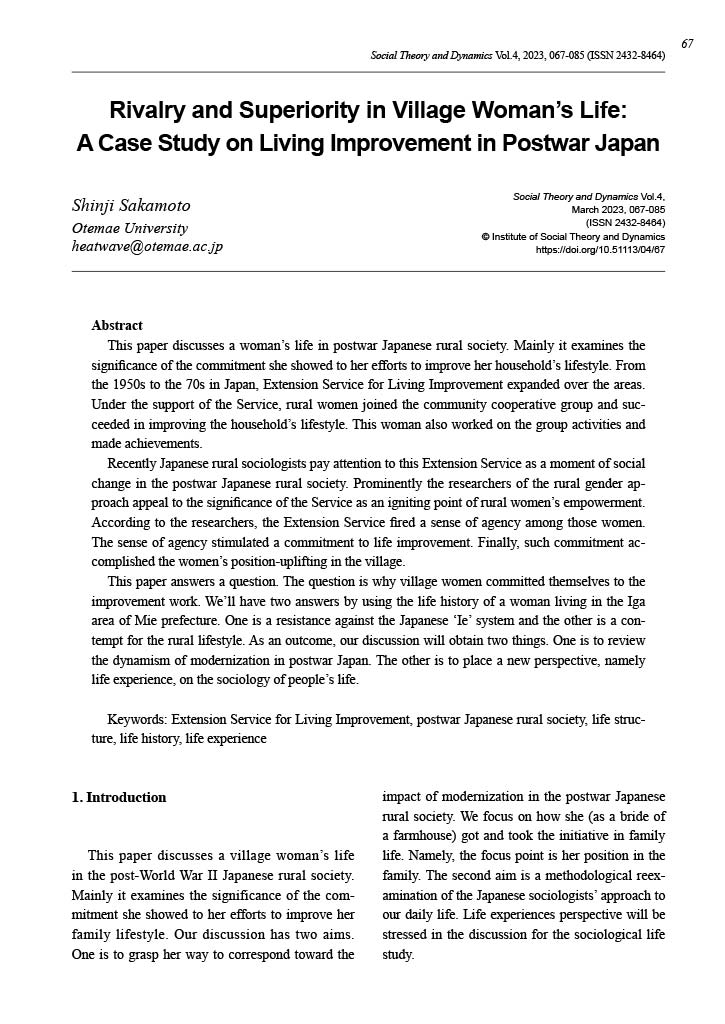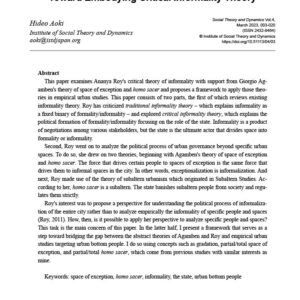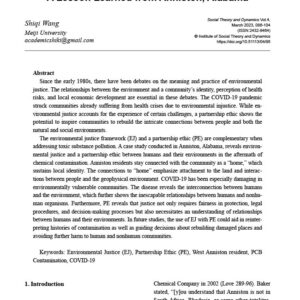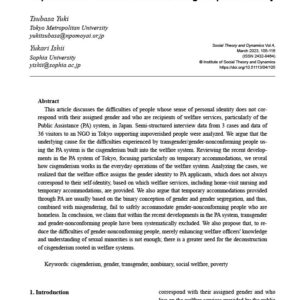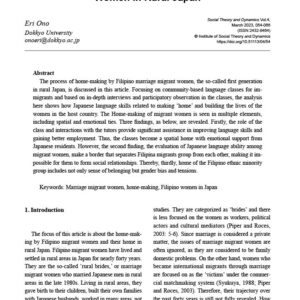Description
This paper discusses a woman’s life in postwar Japanese rural society. Mainly it examines the significance of the commitment she showed to her efforts to improve her household’s lifestyle. From the 1950s to the 70s in Japan, Extension Service for Living Improvement expanded over the areas. Under the support of the Service, rural women joined the community cooperative group and succeeded in improving the household’s lifestyle. This woman also worked on the group activities and made achievements.
Recently Japanese rural sociologists pay attention to this Extension Service as a moment of social change in the postwar Japanese rural society. Prominently the researchers of the rural gender approach appeal to the significance of the Service as an igniting point of rural women’s empowerment. According to the researchers, the Extension Service fired a sense of agency among those women. The sense of agency stimulated a commitment to life improvement. Finally, such commitment accomplished the women’s position-uplifting in the village.
This paper answers a question. The question is why village women committed themselves to the improvement work. We’ll have two answers by using the life history of a woman living in the Iga area of Mie prefecture. One is a resistance against the Japanese ‘Ie’ system and the other is a contempt for the rural lifestyle. As an outcome, our discussion will obtain two things. One is to review the dynamism of modernization in postwar Japan. The other is to place a new perspective, namely life experience, on the sociology of people’s life.

